Savour indigenous cuisine from a native community that gets a flavour twist by culinary students at an upcoming wild food festival in Kurla
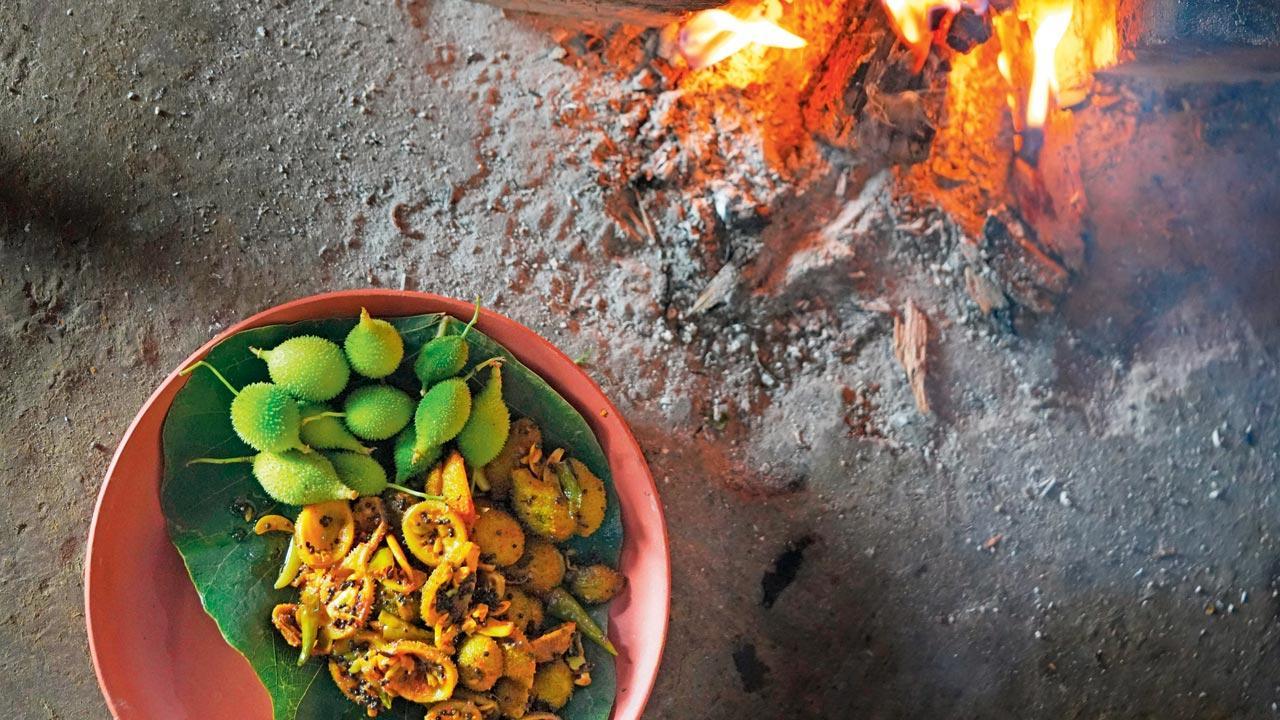
Khaar kartuli made from brined spike gourd with salt and lemon; and tempered with garlic, mustard and green chillies will be part of the dishes served at the festival
Matru ki bijlee ka kantola; bamboo Marie with a dip infused with mahua and tamarind; kurdu cigars; and raan bhaji and gharbhandi pakodas — these are just some of the quirky names of dishes that are being devised by third-year students at Don Bosco College of Hospitality Studies, Kurla for the forthcoming annual Wild Food Fest. The festival, in its sixth edition, will be held in association with OOO Farms, a farm movement working with the tribal farming community for indigenous native and heirloom seed conservation, cultivated and foraged food documentation, tribal culture preservation and creation of a supply chain of more than 200 tonnes of tribal produce in Maharashtra and Gujarat. Of the 10 directors, seven hail from the tribal community and most are women.
ADVERTISEMENT
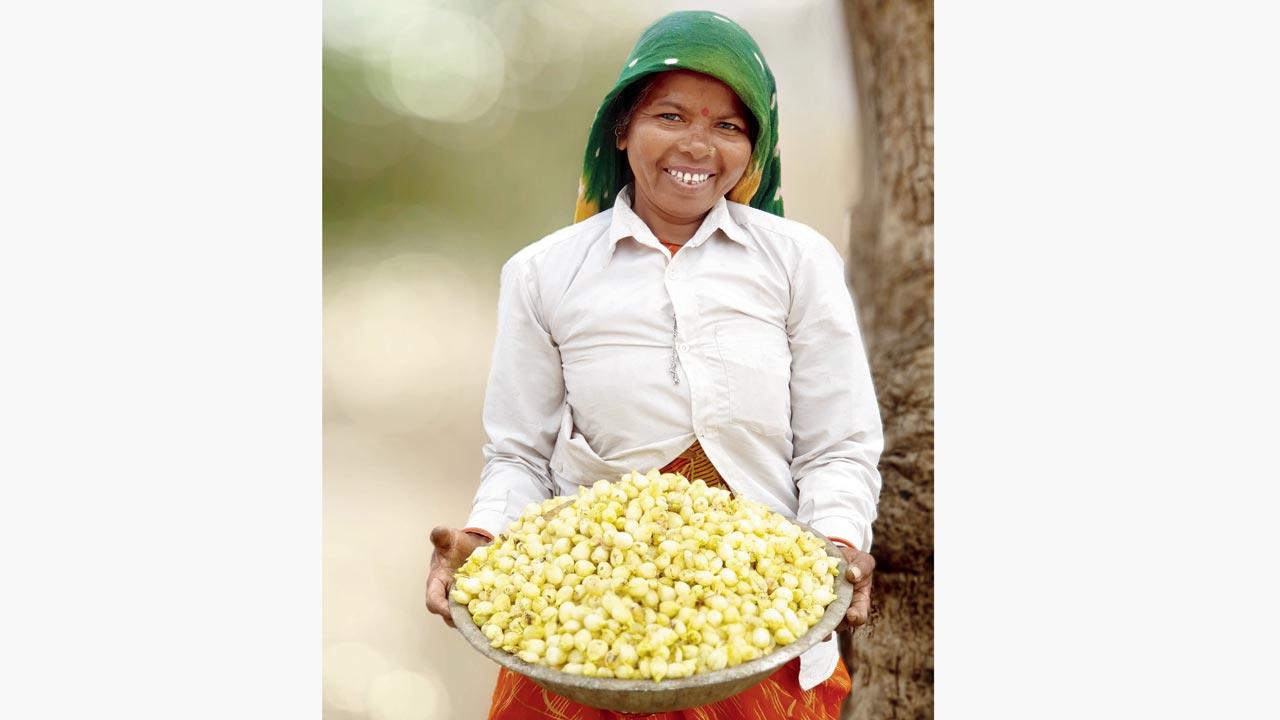 A woman from Rathva tribe of south Gujarat holds a basket of fresh mahua flowers
A woman from Rathva tribe of south Gujarat holds a basket of fresh mahua flowers
Six years ago, its co-founder Shailesh Awate was invited as a guest to a pada in Jawahar, Palghar, where he sampled 35 wild vegetables — all with different flavours and aromas. “My palate had never witnessed anything like this. Every tribal family had cooked one dish for us and the head of the tribe questioned them about where they had found it, whether it was in abundance or was it scarce, and if it required conservation. It made me think of how, in the cities, we use words like sustainable, ecological, and organic loosely, but don’t practise putting the wisdom to use,” says Awate. That’s where the idea for the first Wild Food Festival was sown. With their first-mover advantage, the fest showcased 200 wild edibles and medicinal plants, and soon enough chefs and restaurants joined hands to set up a supply chain. “Our initial response was negative as we didn’t want to take away the tribe’s food and nutrition. However, they informed us that some wild vegetables grow like grass and are available even more than cultivated foods. We then created a wild food economy that fetched them more money than cultivated grains,” he adds.
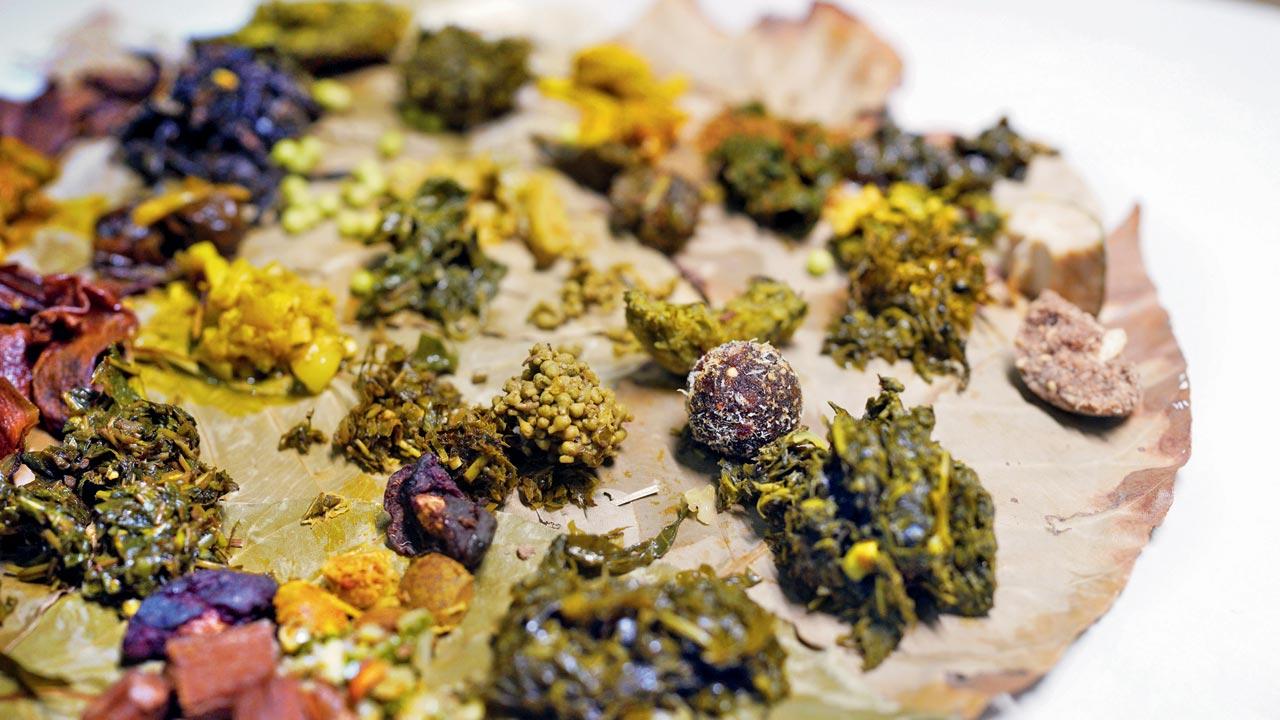 A wild food thali with over 40 wild vegetable preparations
A wild food thali with over 40 wild vegetable preparations
Today, they work closely with the Kokni, Warli, Mahadeo Koli, Katkari, Bhils, and Rathva tribes. Co-founder Shikha Kansagara says, “Interestingly, wild edible plants are naturally disease-resistant and adaptive to microclimatic changes such as low rainfall, high temperature, etc. Compare these with introduced or exotic plant species that won’t survive such changes — that’s the difference we must appreciate. This traditional knowledge of the many indigenous communities of India on edible resources and wisdom of consumption — transmitted from one generation to another — deserves documentation to widen our food sources.”
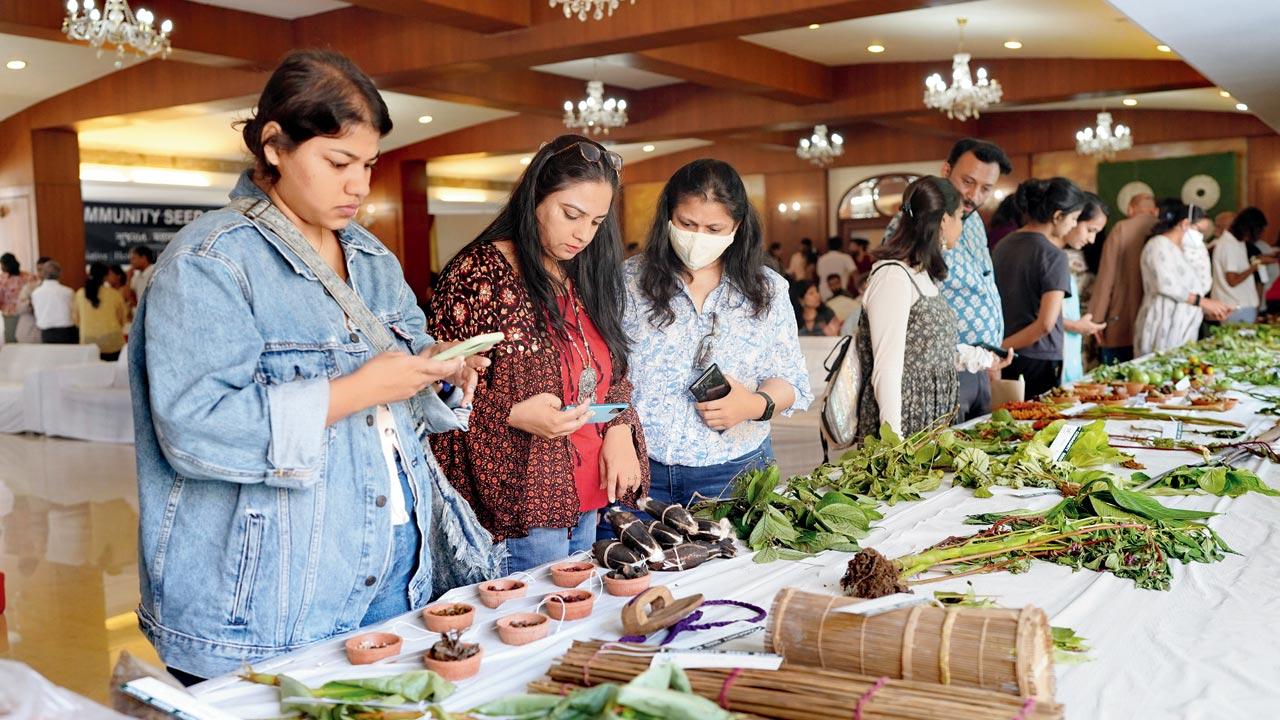 Participants explore an array of indigenous food at a session
Participants explore an array of indigenous food at a session
At the festival, visitors will witness a documented showcase of 150 to 200 wild vegetables foraged from the forests of the Sahyadris. In fact, the Western Ghats have been identified as one of the 34 global biodiversity hotspots. There are over 40 wild vegetable dishes on the tasting menu. We sensed the enthusiasm while speaking to Annabelle Rodrigues (above), head of department, hospitality studies at Don Bosco College of Hospitality Studies, when she said, “The students are quite excited to be working alongside 20 tribal women who would be sharing their ancestral wisdom and recipes for these vegetables — we couldn’t have asked for better hands-on learning for our students. From waiting staff to chefs, to housekeeping — this event serves as a well-rounded experience for all our students.” At dinner, there will be a buffet spread of 25 dishes from mountain cuisine, cooked by tribal farmers. A cultural showcase of tarpa players, tribal dancing and Warli painting as well as a farmer’s market will also be a part of this event. In addition, there are panel discussions with domain experts like conservationists, anthropologists, scientists and chefs to create awareness about and understand non-cultivated wild foods and their importance.
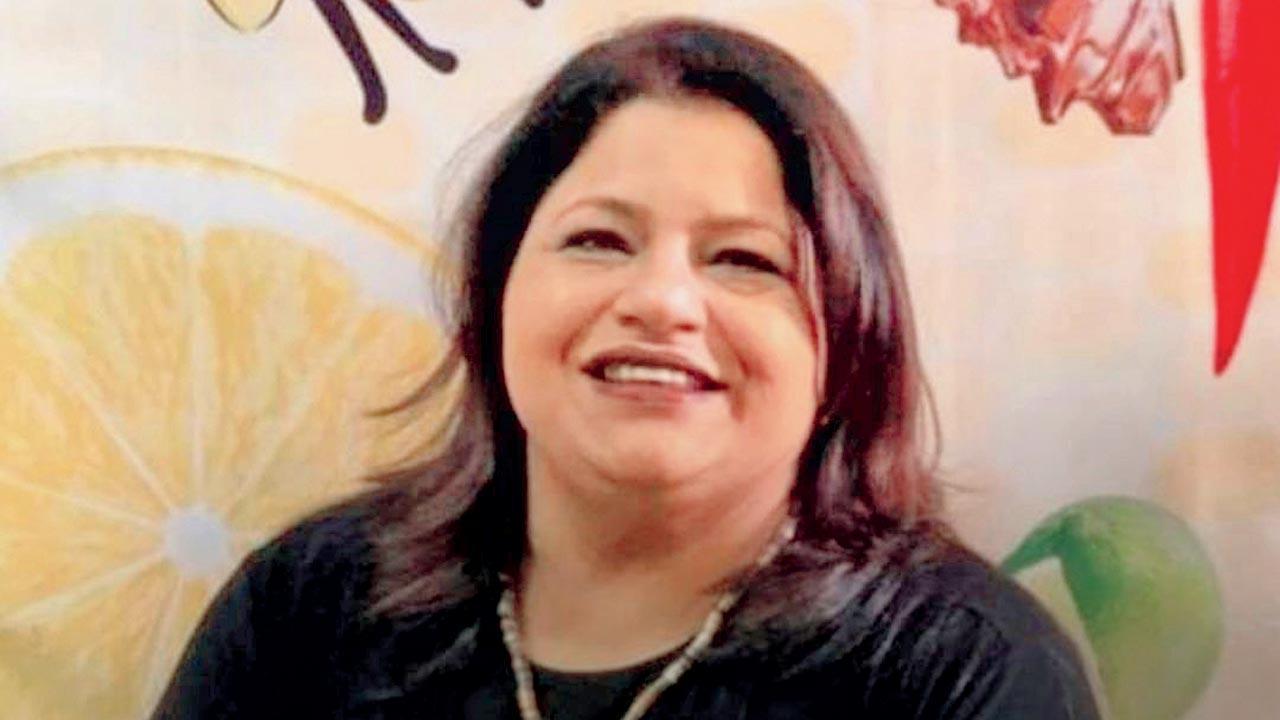 Annabelle Rodrigues
Annabelle Rodrigues
Awate sums up the mood, “By hosting the festival at a hospitality college, they are creating a space where students, community members, and food enthusiasts can come together, learn from one another, and collectively celebrate the rich culinary diversity of Maharashtra’s tribal heritage.”
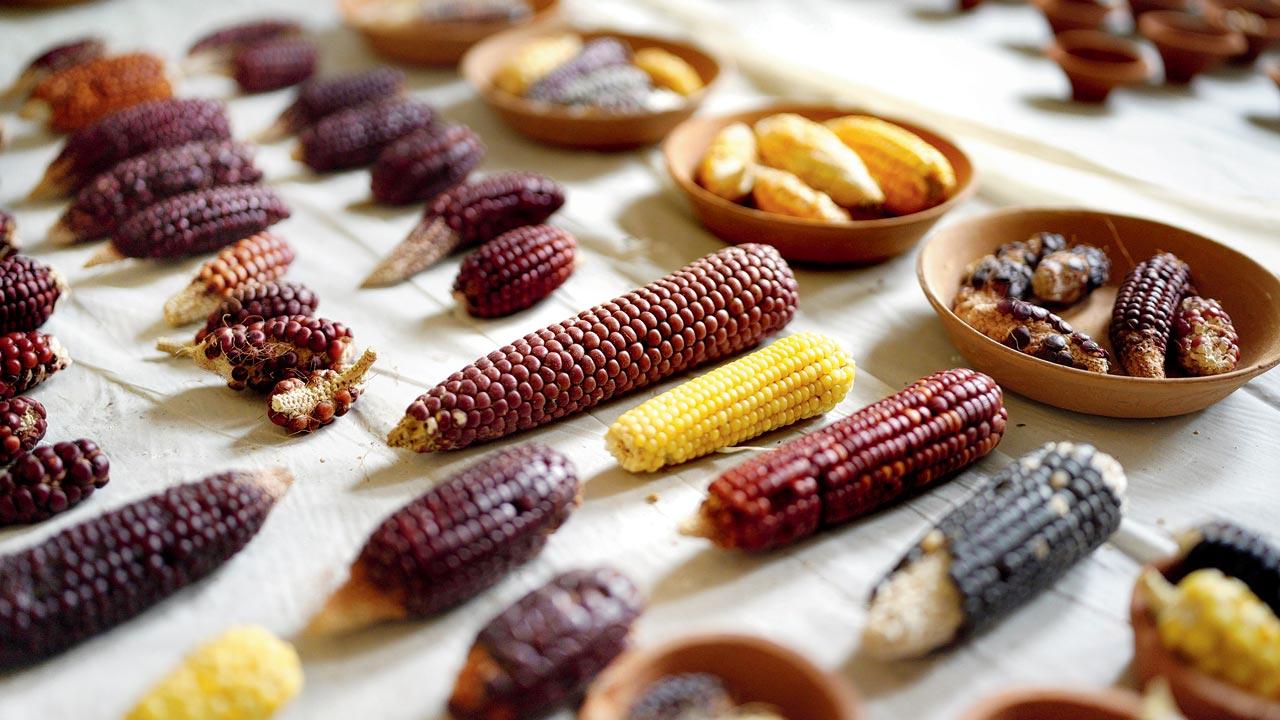 A collection of wild corn
A collection of wild corn
On Sunday, August 27; 2.30 pm to 10 pm
At Don Bosco College of Hospitality Studies, D-Wing, near Kohinoor Mall, Kurla West.
Log on to www.ooofarms.com (to register)
Entry Rs 1,250 per person
 Subscribe today by clicking the link and stay updated with the latest news!" Click here!
Subscribe today by clicking the link and stay updated with the latest news!" Click here!







